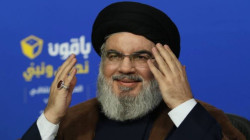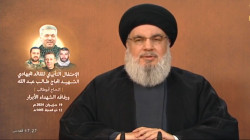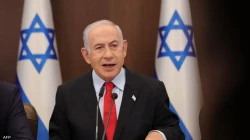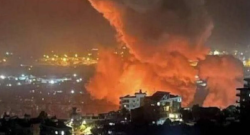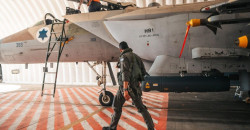Fragile Peace: Axis of Resistance cautious as Gaza ceasefire enters effect
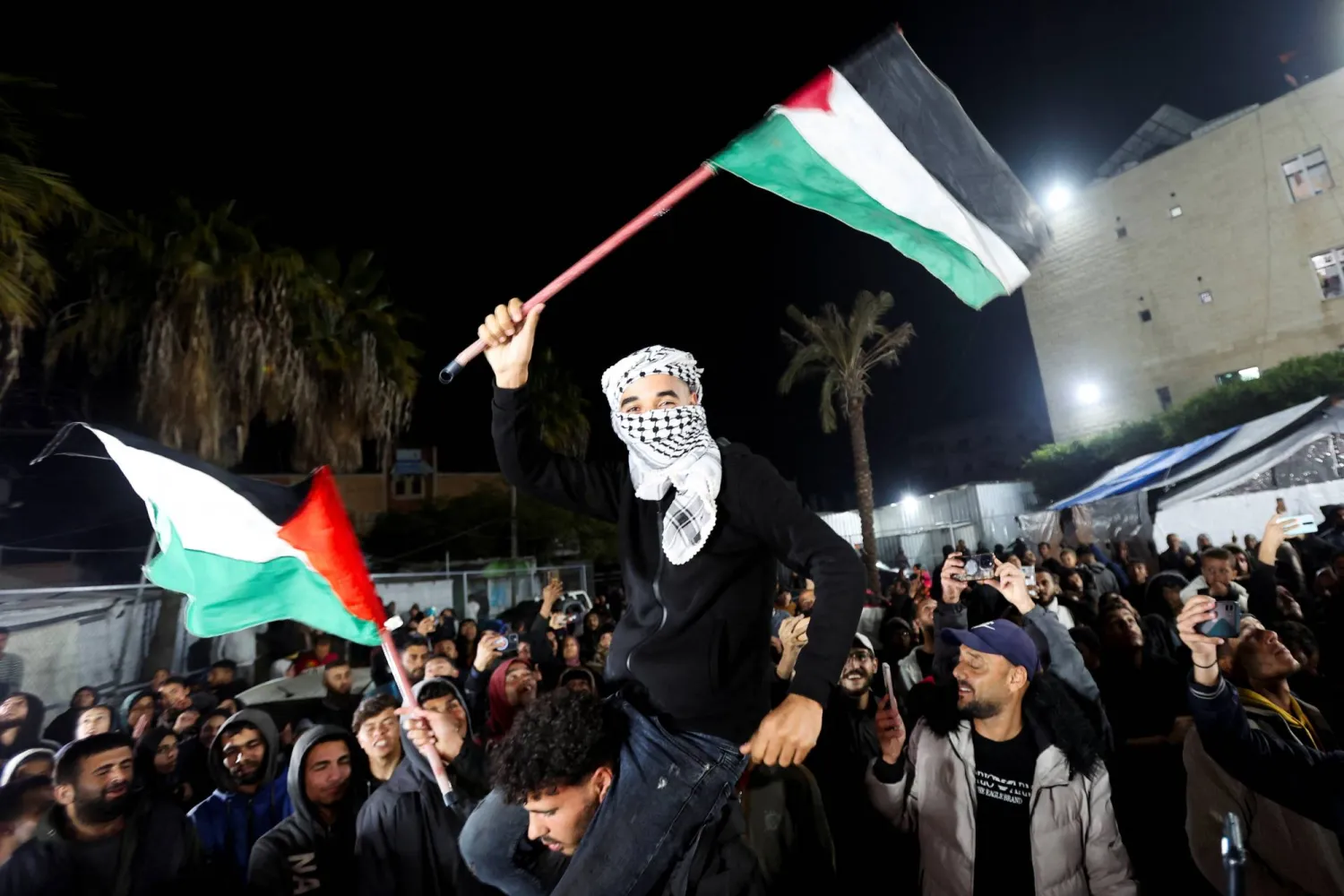
Shafaq News/ After 470 days of intense conflict, a ceasefire agreement between Hamas and Israel has brought a fragile pause to the fighting. The Axis of Resistance, which had been a part of the prolonged war with Israel now watches this ceasefire with caution.
Terms of Ceasefire Agreement
The deal, mediated by Egypt, Qatar, and the United States, establishes a three-phase truce. According to Qatar's Ministry of Foreign Affairs, the first phase, which started on Sunday morning, is expected to last six weeks.
It includes the release of 33 Israeli captives held in Gaza in exchange for 737 Palestinian prisoners. It also outlines Israel's withdrawal from densely populated areas in Gaza and a substantial increase in humanitarian aid to the besieged enclave.
According to former US President Joe Biden, the truce’s first phase aims to avert a looming famine in Gaza, as warned by the United Nations. The prisoner exchanges are scheduled to occur on days 7, 14, 21, 28, and 35 of the first phase.
While many in Gaza celebrated the calm, concerns about Israeli adherence to the terms of the deal quickly surfaced. Reports emerged that the Israeli military conducted airstrikes in Gaza just hours after the ceasefire took effect. Gaza’s Civil Defense reported that 19 people were killed and 36 injured in the strikes.
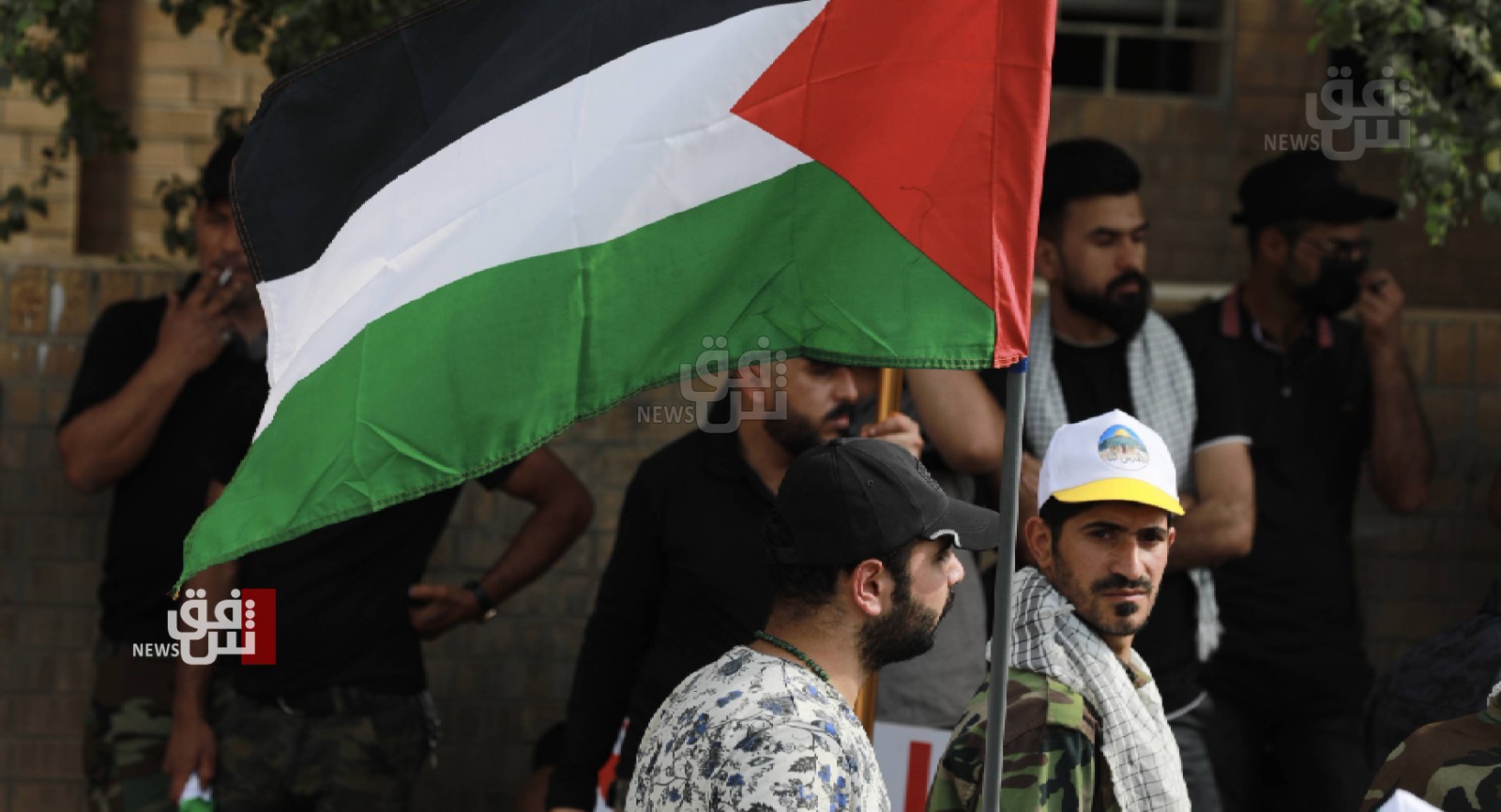
Axis of Resistance Reacts
Factions within the Axis of Resistance hailed the ceasefire as a victory for Hamas, which has maintained its presence despite Israel’s attempts to eliminate it. However, skepticism about Israel’s commitment to the agreement remains high.
Abu Ubaida, the spokesperson for Hamas’s military wing, Al-Qassam Brigades, reaffirmed the group’s commitment to the truce and thanked regional allies, including Hezbollah in Lebanon, the Houthis in Yemen, and Iraqi resistance factions who supported Gaza’s resistance efforts.
On October 8, 2023, Hezbollah launched its first operation in support of Gaza, describing it as a “supportive battle” that would not cease until the war ended.
In his speech after announcing the Gaza agreement, Hezbollah’s Secretary-General, Naeem Qassem, described the ceasefire agreement in the Strip, as evidence of the resistance’s “steadfastness” against Israel. he also warned Israel “not to test” the party’s patience following continued violations of the ceasefire agreement in Lebanon.
From Iraq, Harakat Al-Nujaba, an Iraqi-based military group within the Axis, announced a suspension of operations against Israeli targets but warned that its missiles remain ready.
During the Gaza war, the Islamic Resistance in Iraq targeted US bases in Iraq and Syria, before shifting their focus to Israeli sites.
Salam Al-Jazaeri, a senior figure in the Asaib Ahl al-Haq movement, emphasized that Israel has a history of breaching agreements and violating red lines. He confirmed to Shafaq News that "The Axis of Resistance is closely monitoring Israeli violations and the ceasefire agreement. While prepared to respond to any scenario at the appropriate time, it is currently giving the sponsoring states of the ceasefire agreement a chance to ensure its success.”
“We remain hopeful for a positive outcome.”
In Yemen, Ansarallah leader Abdul-Malik al-Houthi announced that the group would support the implementation of the ceasefire agreement in Gaza while maintaining military readiness in case Israel reneges on the deal.
In a televised speech broadcast by the Houthi-affiliated Al-Masirah channel, he stated, "We will closely monitor the stages of the ceasefire agreement in Gaza. Any Israeli backtracking, massacres, or blockades will prompt us to provide immediate military support to the Palestinian people."
In turn, Brigadier General Abed Bin Mohammed Al-Thawr, a Yemeni military official, warned that any Israeli violation of the ceasefire would prompt a swift military response from Sanaa.
Yemen, which joined the effort to support Hamas in November 2023, imposed a naval blockade on Israeli ships and targeted over 211 vessels belonging to Israel, the US, or the UK. By January 2025, the Israeli military reported intercepting 40 missiles and 320 drones launched from Yemen.
Predictions and Doubts
Observers warn that the ceasefire’s fragility increases the likelihood of renewed fighting. Political analyst Farhan Musa Alqam told Shafaq News that “Israel is prone to evading commitments during wartime, which is why Hamas demanded guarantees to ensure compliance.”
"The Resistance is fully aware of this reality, which is why it insisted on the necessity of having guarantees and guarantors to compel the occupation to adhere to the agreement." He told Shafaq News.
As for the resistance's response to Israeli violations, he warned that the Resistance would “expose the occupation's actions, and lay bare their breaches to justify its position before taking any escalatory steps.”
Analysts also predict that Hamas will not immediately retaliate against Israeli violations but will pressure mediators to hold Israel accountable. If breaches persist, escalation is expected.
Ziad Hamouri, director of the Jerusalem Center for Economic and Social Rights, expressed similar concerns, stating, “Israel has never shown genuine commitment to its promises…If it continues its airstrikes on Gaza, a return to war is likely.”
In an interview with Shafaq News, Hamouri pointed out that despite the severe massive destruction in Gaza, the resistance has managed to endure and respond to Israel over the past 15 months, ultimately securing this agreement.
Meanwhile, Salah Abdel Ati, head of the International Committee for Supporting the Rights of the Palestinian People, added that ensuring Israel’s accountability is critical. “We hope mediators will force the occupying state [Israel] to adhere to the ceasefire and stop its genocidal war,” Abdel Ati told Shafaq News.
"Currently, Israeli violations will be monitored and addressed with the mediators. At the same time, efforts will focus on recovery and humanitarian responses to the catastrophe caused by the occupation, ensuring the provision of necessary supplies for civilians, supporting social stability, and addressing the health needs of the wounded and sick, along with other humanitarian aspects."
Mediators’ Role and Challenges
Egypt, Qatar, and the United States now face immense challenges in ensuring the agreement holds. While Egypt facilitated the negotiations, Qatar’s guarantees and financial support remain crucial. The United States, a key ally of Israel, must balance its support for Israeli security with pressure to adhere to humanitarian obligations.
Israeli Prime Minister Benjamin Netanyahu, backed by the US, described the ceasefire as “temporary” and reserved Israel’s right to resume hostilities if deemed necessary.
Now, mediators are expected to monitor violations and push for de-escalation, but their influence may wane if Israel opts for aggressive actions.
Analysts believe that continued Israeli airstrikes on Gaza or failure to adhere to the prisoner exchange terms could provoke a coordinated regional response. They suggest that while the Axis factions prefer maintaining the truce, they remain prepared for escalation if Israel’s actions cross critical thresholds.
